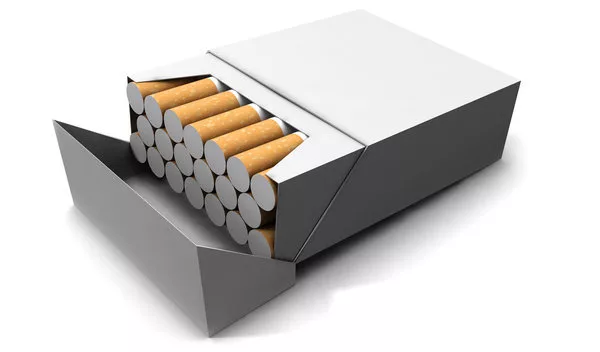A problem that has long plagued border counties like Berrien, Cass and St. Joseph Counties here in Michigan is increasingly being felt in other border locations nationwide. It’s the issue of cigarette smuggling. According to a new study by researchers with the Mackinac Center for Public Policy and the Tax Foundation, high state cigarette excise tax rates continue to encourage tax evasion and avoidance around the country.
The study updates previous research by the authors that examined the degree to which cigarettes are smuggled across state borders within the contiguous United States, among other unintended consequences. They did so after another thorough review of existing literature on the topic from academics, governments and consultancies, all of which is summarized in the report. Most other scholarship suggests that high cigarette excise taxes encourage tax evasion and avoidance.
The authors estimated total smuggling rates by comparing the published smoking rates of adults in 47 states to the legal paid sales of cigarettes in those states. The difference between the two is attributed to smuggling.
Michael LaFaive is the Director of the Morey Fiscal Policy Initiative at the Mackinac Center here in Michigan. He says, “It’s important for policymakers to understand that cigarette tax increases typically lead to increased rates of smuggling.” LaFaive is a study coauthor, and he adds, “Cigarette smuggling is often associated with increased violence and other crimes, and these factors should be considered when lawmakers debate cigarette tax increases.”
New York continues to boast the highest smuggling rate, with 55-percent of cigarettes being consumed there smuggled in from elsewhere. With a $4.35-per-pack tax, New York has the highest state cigarette taxes; New York City imposes an additional $1.50-per-pack levy. In terms of their rank among the states, New York is followed by Arizona, New Mexico, Washington and Minnesota.
Michigan ranks 14th highest with a state excise tax of $2.00 per pack of cigarettes, while neighboring Indiana is less than half that rate at $0.995 for a rank of 37th nationwide. That sends many Berrien County smokers over the state line routinely as many Michigan retailers have long complained about. Ohio’s tax rate is $1.60 per pack for a ranking of 25th in the nation, and Illinois is closer to Michigan’s rates at $1.98 for 19th highest rate in the nation.
Todd Nesbit, a Senior Lecturer in Economics at Ohio State University is also co-author. He points out that, “Most consumers are very rational shoppers.” He notes, however, that, “As the price of cigarettes rise from excise tax hikes, many look for cheaper alternatives in other taxing jurisdictions. A price hike likewise acts as a signal to organized crime that there are profits to be made smuggling smokes on a large scale to distant locales.”
Massachusetts and Minnesota saw the largest jumps in smuggling rates since the Mackinac Center and Tax Foundation last analyzed rates last year, using data from 2013. Since 2013, the states have increased their per-pack taxes by $1.00 and $1.60, respectively. Rhode Island saw its smuggling rate decline most dramatically, likely because Massachusetts increased its cigarette taxes, reducing the incentive to smuggle.
New Hampshire stands as the top exporter of smuggled cigarettes, according to the research. It has relatively low cigarette taxes compared to surrounding states and for every 100 cigarettes consumed there an additional 80 were smuggled out.
LaFaive, Nesbit and Scott Drenkard, a third co-author and director of state projects for the Tax Foundation in Washington, D.C., conclude that due to smuggling, tax increases on cigarettes may not generate the revenue anticipated. Their model can be used to create “what-if” scenarios to determine what could happen to revenues and smoking and smuggling rates if taxes are lowered or increased.
Drenkard tells us, “Because smuggling rates depend so heavily on taxes in neighboring states, lawmakers concerned about smuggling and associated crime in their states need to consider the gap in excise taxes.” He adds, “Policymakers also need to keep this in mind when seeking to raise cigarette taxes, especially when relying on the revenue to close a budget hole.”
The full study is available by clicking this link:






